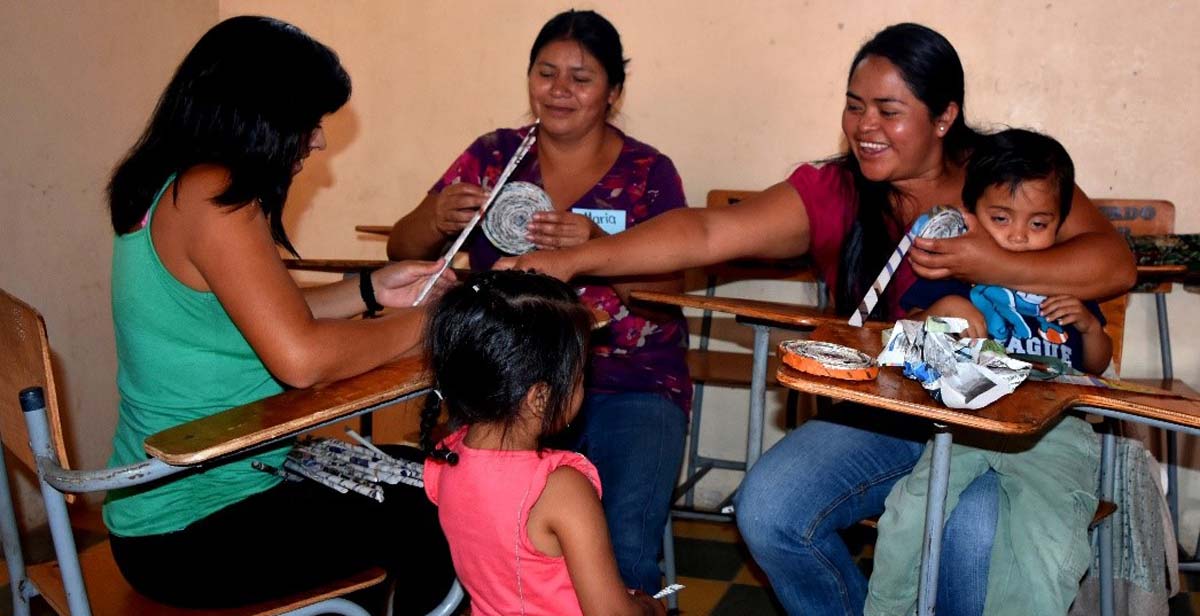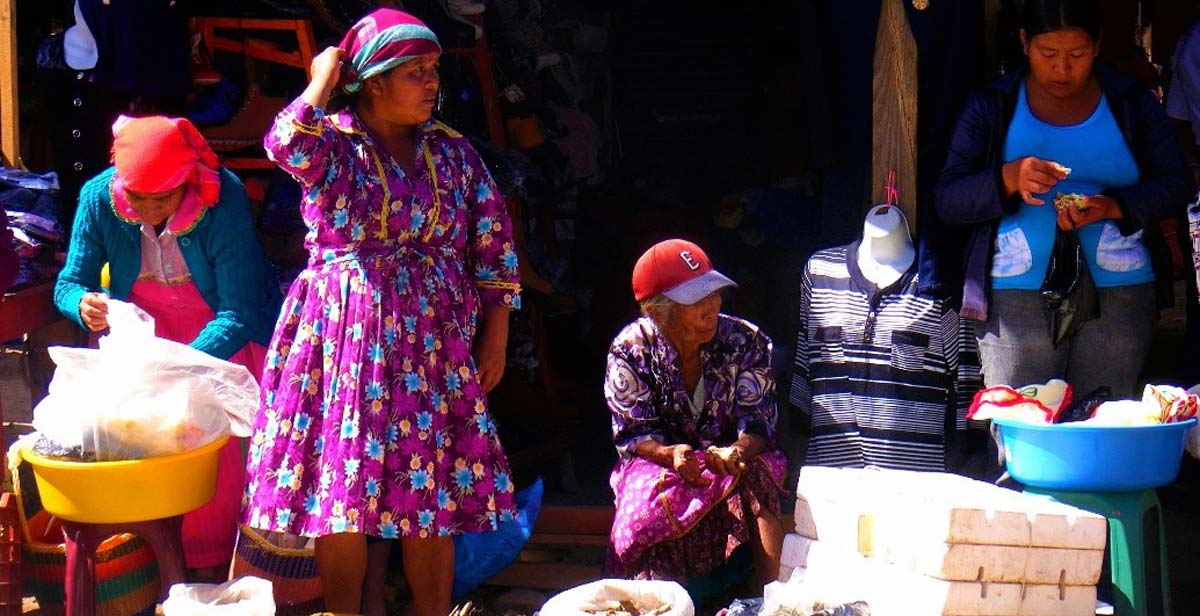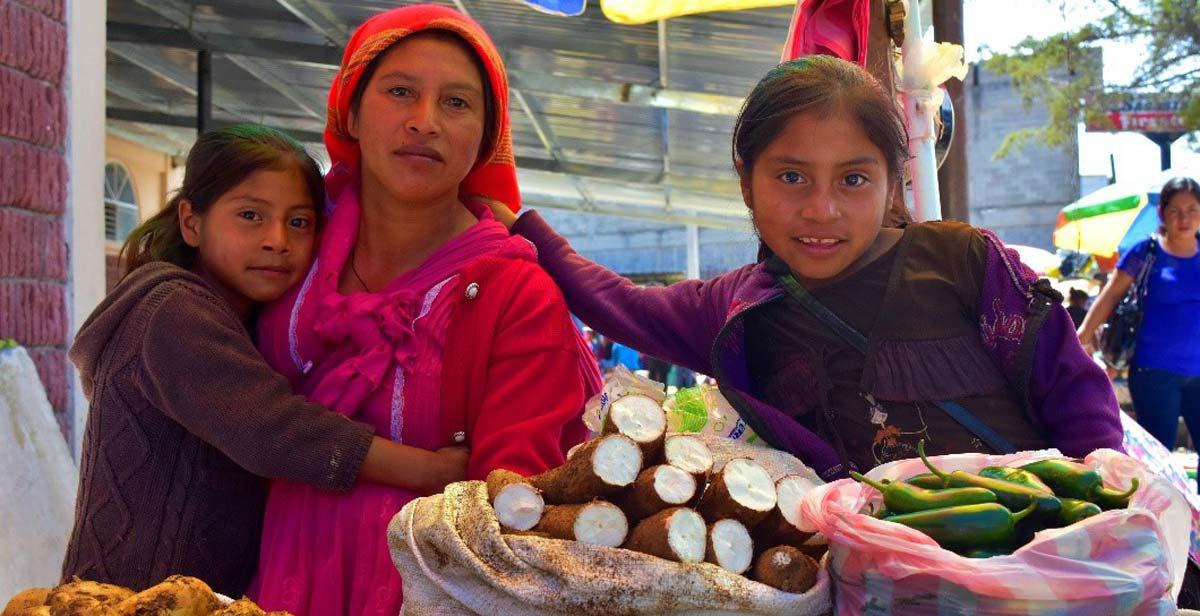Women in Honduras are living a paradox. Women are becoming more aware of their rights, feminist movements have grown, and more women than ever are participating in economic life. This seems like good news; but progress has hit a wall. No development occurs in a vacuum. Alongside these changes over the last few decades, violence in Honduras has sky-rocketed: it now has the highest murder rate of women in the world. These two trends share an important link.
Honduran women have made advances in breaking out of traditional roles. The rate of women who are economically active has been growing steadily for decades, and now many more are leaving the traditional expectations of being a housewife behind, and finding formal or informal employment. In a country where they are often oppressed, on the surface this is very positive for women’s advancement: they are achieving more economic independence, gaining self-esteem and confidence, and building a life outside of the domestic sphere they have too often been confined to.
 Women and their children at an enterprise workshop in Honduras
Women and their children at an enterprise workshop in Honduras
Digging deeper, the view under the surface does not look as promising. Whilst not to belittle the significance of this progress, the unfortunate reality is that many of these changes have come about as a necessary reaction to wider social patterns: ones that are making women’s lives harder and more dangerous.
Much of what has pushed women into work, other than choice, is that they are increasingly finding themselves on their own with children: single mums run 32% per cent of Honduran households. This is largely due to a mixture of the culture of men not taking responsibility for their children, and the number of men who have migrated to other countries, particularly ‘El Norte’ (the US), fleeing gang violence and looking for jobs that are just not available in Honduras. Desperate women, including mums and young, single (and vulnerable) women, are flocking from rural to urban areas to find work, which is scarce in most places.
Employers know how desperate women are to work, in order to survive and feed their families. The work that women find is often highly discriminatory. They have to put up with receiving significantly lower wages than their male counterparts, often below minimum wage, and employers use ‘flexible working’ as an excuse to ignore workers’ rights. Some women are forced to take pregnancy tests and answer intrusive questions about their personal lives to find employment.
Structures surrounding women’s empowerment have failed to keep up. Whilst women are either choosing or forced to find work, there isn’t childcare support to allow mothers to separate their private and public lives, meaning many have to bring their children to work, or leave them with relatives and neighbours. There hasn’t been the cultural transition of men stepping up to do more domestic work, which results in exhausted women who have been working all day having to come home and still do the cooking, cleaning and childcare, even in houses with male relatives. More women in employment has created a double burden.
Violence is a common theme that runs through every sector in society. Alongside all of these transitions that women are making, violence creepily follows them out of the home and into the public sphere. Honduras has long harboured a macho culture, which normalises domestic violence, but recently the dominant form of violence has swung into public life. The constantly increasing femicide rate can be partially attributed to the modernisation of women: they are leaving the home more and moving to urban areas, which puts them at far more risk of being a victim of violence. This ranges from violent muggings, to kidnaps, rapes, and murders. It is estimated that now in Honduras around 20 per cent of femicides occur domestically in the home, whereas 60 per cent are due to organised crime, in the public sphere. In other words, women’s changes in lifestyle and movement mean they are getting caught up more easily in the country’s wider crime issues.
Honduran men too are facing a battle in the world around them, characterised by a lack of opportunities and a sense of frustration and powerlessness to change their situation. The expectations of them as males can put them under huge pressure. This unfortunately often manifests itself through the mirroring and amplifying of the violence escalating around Honduras: the vast majority of crime against women is committed by men.
The consequence of this trend of violence is a back-pedalling in progress of women’s struggles to gain equal social status as men. The surge in violence is intimidating women into avoiding the already difficult transition into public life, discouraging their participation where it is needed more than ever to curb the downward spiral Honduras is being sucked into.
 Women selling food in the street in La Esperanza
Women selling food in the street in La Esperanza
Development is rarely straight-forward, and the case of women in Honduras demonstrates the many societal factors that mix together to spur-on or halt progress. Whilst things may look simple on one side of the equation, interlinking influences can make them a lot more complicated than they seem. Women are facing the increasing threat of violence in public as a huge barrier to their collective move towards breaking out of traditional social confines, where there has been some form of progress in reducing violence in their homes. Although these alternative restrictions of violence are paralysing, Honduran women are continuing the struggle against their society to knock down the obstacles they face on a daily basis.
Written by ICS Team Leader Ellie Wason (July - September 2016 cycle, San Benito, Honduras)



